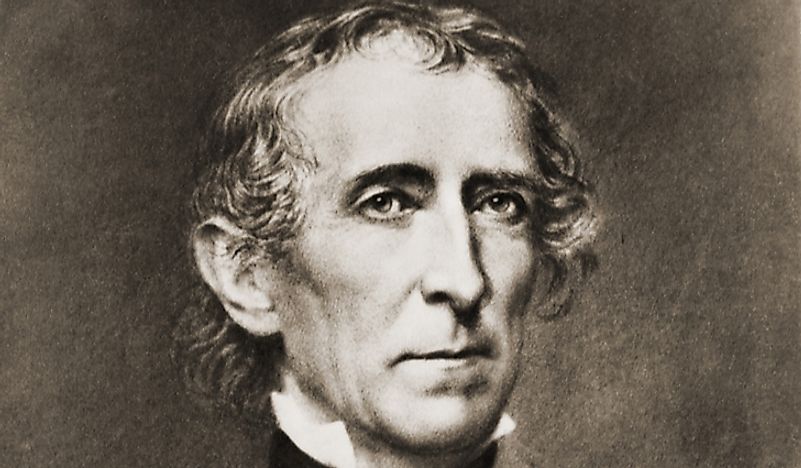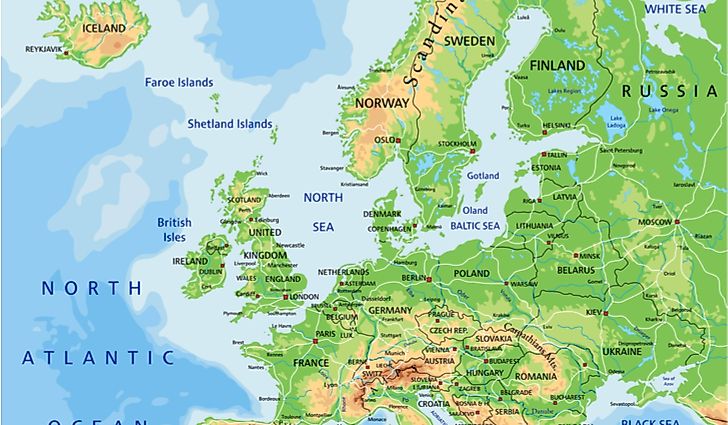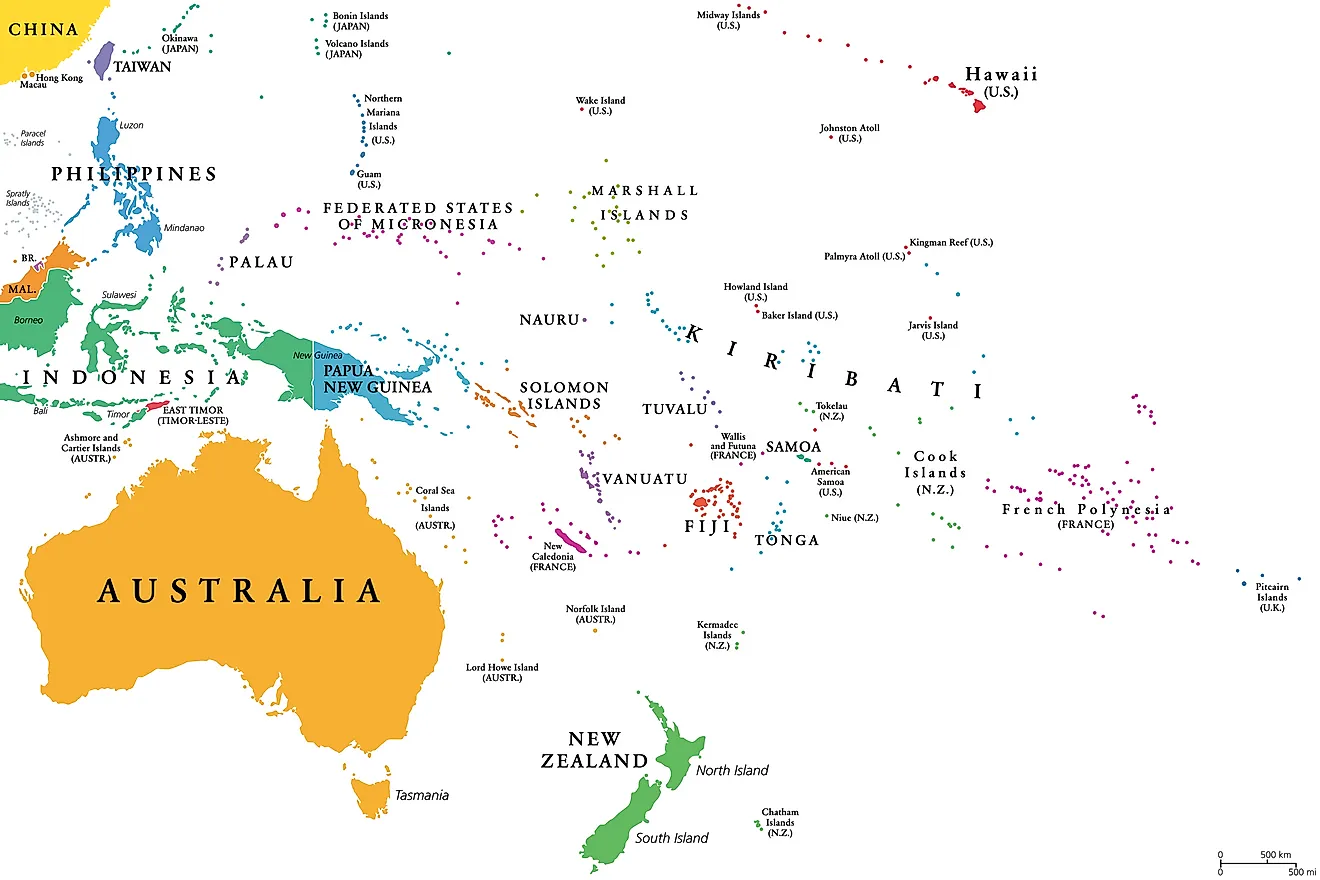10 Facts About President John Tyler

John Tyler, the 10th president of the US, served in office from April 4, 1841, to March 4, 1845. He was sworn in following the death of the sitting president, William Henry Harrison. Below are some facts about John Tyler.
10. He was the first President who wasn't elected
John Tyler made history in America by being the first vice president to become a president without elections. The constitution at that time was ambiguous by just stating that the powers, as well as duties, shall devolve to the vice president upon the death, removal, inability to perform or resignation of the president. The sitting president known as William Henry Harrison died of health complications after serving for only a month. Immediately after the death was announced, there was a lot of confusion on succession. Many suggested that Tyler remains “vice president acting president” awaiting elections. Nevertheless, Tyler took the presidential oath on April 6, 1841, and assumed the full powers, duties, and privileges of the presidency. The 51 years old president was sarcastically called “His accidency” by those opposed to his ascension.
9. John Tyler believed in the rights of states
Rights of states refer to putting greater confidence and trust in states or regional governments than in the national government. The advocates of the approach argue that state governments are not only responsive but also more sensitive to problems and issues facing citizens. State governments understand the culture, values, and needs of a specific demography thereby able to address them effectively. Through that mode of operation, the rights of individuals are protected. The founding fathers had a vision for rights of states which Tyler sought to uphold. Tyler strongly supported rights of the state in all public positions he held. During his tenure as president, Tyler always adopted nationalist policies only if and when they did not in any way infringe on the states’ powers. In course of his duties in Washington, Tyler consistently supported rights of states coupled with the analytical interpretation of the constitution before making crucial decisions
8. He had more children than any other president – 15!
Tyler was the father of 15 children from his two marriages. His first wife named Letitia Christin bore 8 children while the second one had 7 children. The first wife passed away in 1842 when he was president prompting him to marry Julia Gardiner. He further made history by being the first president to marry while still in office. However, the children from the second wife were born when he was out of the office of the president since the firstborn, David was born in 1846.
7. John Tyler grew up in Virginia
John Tayler was born in Charles City County, Virginia in March 1790. He was born to a prominent and politically entrenched family. The father was not only a judge but also served in the Virginia House of delegates, as a governor and as speaker of the House of Delegates. Tayler was brought up in his father’s large plantations in Virginia where he was educated from home by specially hired tutors. Despite being sick most of the time, he excelled academically to join the prestigious College of William and Mary. He further read law under his father and under the attorney general. He was admitted to the bar in Virginia at a tender age of 19. He commenced his practice in Richmond. Later he offered various services to the residents of Virginia such as being a member of the state legislature and as their governor. Between 1827 and 1836, he represented Virginia in the U.S Senate.
6. He was expelled by the Whig Party
John Tyler was expelled from his Whig party on September 13, 1841, a few months after taking over the presidency. His unexpected accession to the presidency had greatly threated ambitions of Henry Clay and others who had an eye for the seat. Tyler further turned down a proposal by Henry Clay, his opponent, of not having the incumbent president challenging Clays’ nomination by the Whig party to the presidency in the 1844 elections. On the other hand, Tyler’s mode of operation was not always in line with the doctrines of the Whig party. Tyler vetoed many bills by the Whigs party because he found them either unconstitutional or infringed on the rights of the state. The party expelled Tyler after he failed to give in to their demands and resign.
Background information was that, following the death of President Harrison, Tyler took over under what many said was a constitutional crisis. He was expected to continue adhering to the policies of the Whig party like his predecessor Harrison. However, Tyler took his own method of governing the country. A notable case is on the issue of national banking Act where Tyler objected to the Act and proposed the exchequer. All the cabinet members that Tyler has inherited from Harrison resigned except one after he vetoed bills that were aimed at creating a new national bank. The orchestration by his opposers was to make Tyler vacate the office. The Whigs Congress, in a bid to frustrate Tyler, failed to allocate money to fix facilities in the White House. Tyler not only received assassination threats but the Whigs even tried unsuccessfully to impeach him in 1843.
5. He strongly believed in manifest destiny
Manifest destiny was a philosophy coined by the Americans to justify their drive to conquer more territories. The advocates of manifest destiny believed that it was their divine right to spread dominion, capitalism, and democracy across the continent. Some used the term to refer to the expansion of slavery and war against Mexico. The proposers of the doctrine believed that they had an obligation of expanding the west up to the Pacific Ocean and even beyond. When John Tyler ascended to the presidency, his determination to proceed on with the manifest destiny was evident. An example is the annexation of Texas as a U.S state a few days before he vacated office. In fact, on his last day as the president, Florida state was admitted as the 27th state to the Union. Tyler wanted America to broaden the territory and increase economic influence. His commitment to manifest destiny was partly driven by his belief that the issue of slavery cannot be resolved by abolition but by spreading it to new regions.
4. His presidency is not seen in high regard by historians
The presidency of John Tyler is held with very low esteem among historians. They believe that his tenure was flawed to a large extent. It is rated as one of the least successful presidencies hence left almost no legacy. Nevertheless, the president served in a hostile environment. He had opposition from his party which even stripped him of membership. They wanted him to be under the executive while Clay treated him as a subordinate staff. Grief after the loss of his wife could have made him underperform. Although politicians have held his achievement with high regard, historians believe that he was unnoticeable in terms of cultural impact in the memory in Americans.
3. Tyler was Anti-British
Tyler strongly opposed the British. The opposition was against the background of the colonial history and the two wars with the British. When Tyler was serving in the Virginia House of Delegates, he supported any anti-British motion brought to the floor. During the 1812 War, he supported military action against the British. In 1813 when the British captured Hampton, Virginia, he organized a counterattack army to defend Richmond in case the British proceeded on. The British eventually withdrew from the region and the army went home triumphant. For his efforts, he was rewarded with a piece of land in Sioux City, Iowa. He is remembered for a warning he gave to the British to keep off from Hawaii.
2. 10th President
Tyler was the tenth president having succeeded Harrison following his sudden death only one month after being sworn in. He is on record as the longest president who was not elected by the people. After being sworn in, he moved to the White House and took over the presidents’ seat with full powers and authority. He is the one who set the precedent that is followed to date regarding succession. As the 10th president, he is credited for efficient foreign policies like the Webster-Ashburton treaty. As the 10th president, he annexed the additional state of Texas three days before expiry of his term in office.
1. Seen as a traitor to the Union
Tyler was seen as a traitor to the Union of the United States after he sided with the Confederate States of America. In 1860, the Confederate States began to secede from the main country under Jefferson Davis. Tyler was seen as a traitor after supporting the confederate where he was even given as a position in 1862 to the Congress of the Confederate States of America. However, he died on January 1862 before he could be sworn into the Congress. Upon his death, President Abraham Lincoln did not even give a proclamation mourning his death. The country did not perform the traditional send-off practices done during the burial of current and former presidents. In fact, he is the only president whose coffin was draped with a foreign flag i.e. the Confederate flag. He was mourned by only the Confederacy who carried out a lavish funeral in Richmond.







